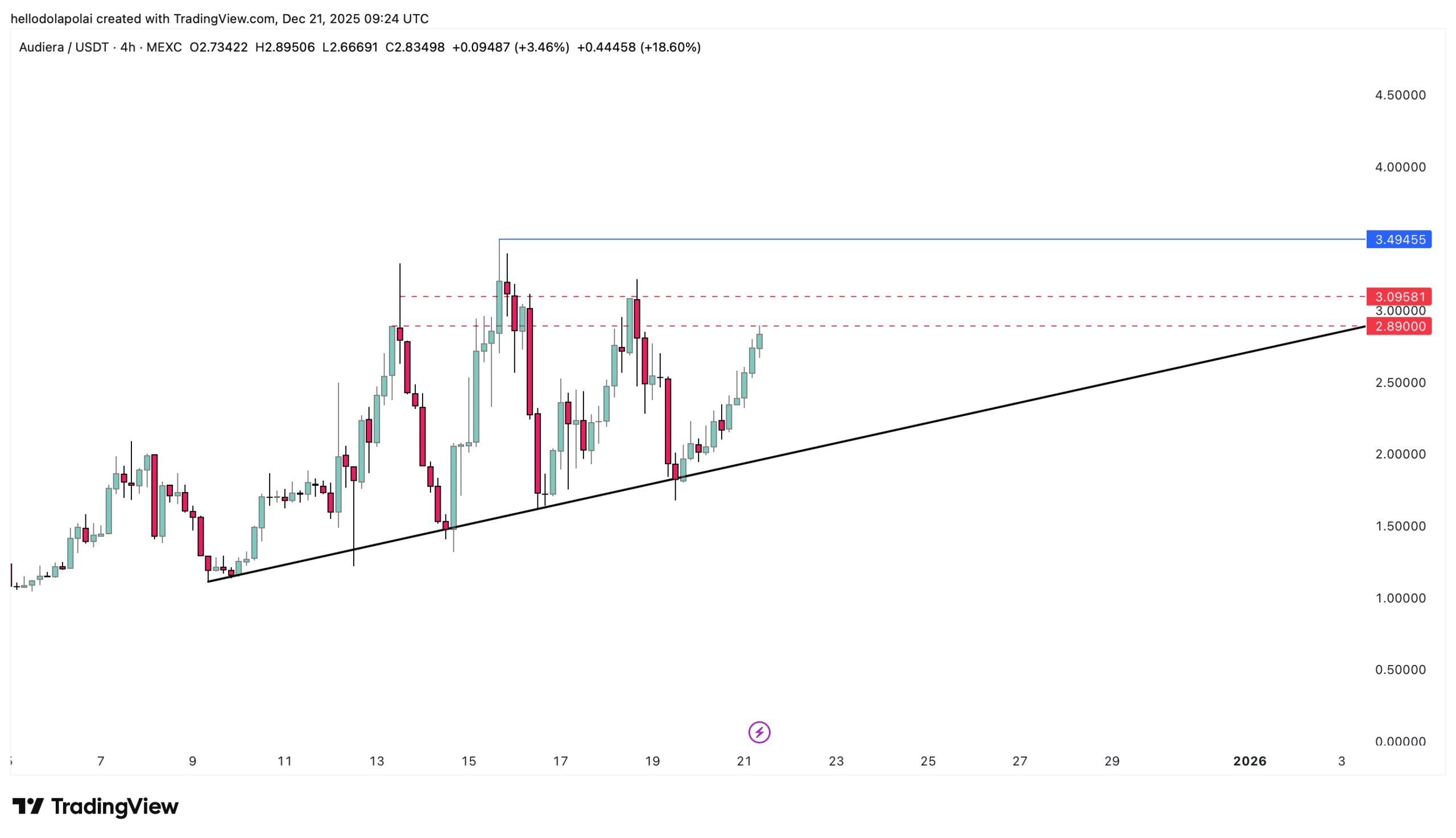Can a blockchain dream build a real city—or just a digital mirage?
- Akon's proposed blockchain-powered Senegal city faces scrutiny over unmet infrastructure goals and sustainability challenges. - Critics highlight governance gaps, regulatory uncertainty, and unstable crypto ecosystems as barriers to scaling decentralized urban projects. - While supporters praise Akon's African development track record, skeptics demand transparent progress metrics to validate the project's viability. - Global blockchain city initiatives show mixed results, with most struggling to integrat
The viability of blockchain-driven urban projects remains under scrutiny as recent examples demonstrate significant challenges in execution and long-term sustainability. One such initiative, Akon City, a proposed blockchain metropolis in Senegal, has sparked both optimism and skepticism among investors, policymakers, and developers. The project, spearheaded by musician and philanthropist Akon, aims to create a self-sustaining smart city powered by a custom cryptocurrency and decentralized systems. Despite high-profile backing and a bold vision, the initiative has yet to deliver on tangible infrastructure or community impact, raising broader questions about the feasibility of similar blockchain city concepts globally.
Akon's efforts in development have primarily focused on smaller-scale projects, such as the Solar Power Africa initiative, which provides renewable energy solutions to underserved regions. While these projects have been praised for their humanitarian impact, they differ significantly from the complex, capital-intensive model of a blockchain city. Critics argue that the lack of clear governance frameworks, regulatory clarity, and sustainable economic models makes it difficult for such ventures to scale beyond conceptual stages. Additionally, the reliance on speculative cryptocurrency ecosystems often proves unstable, particularly in regions where digital infrastructure is underdeveloped.
According to developers and urban planners interviewed for related projects, the core issue lies in the misalignment between technological ambition and practical urban development needs. Blockchain cities typically emphasize digital sovereignty and decentralized governance, yet many fail to address critical physical infrastructure requirements, including transportation, housing, and utilities. Analysts note that while the idea of a self-sustaining digital economy within a physical environment is compelling, the absence of regulatory support and traditional financial integration hampers real-world applicability.
Akon's supporters, however, remain optimistic, citing his track record in social investment and his commitment to African development. Social media responses indicate strong public support, with many expressing hope that Akon will eventually bring large-scale infrastructure improvements to their regions. Yet, skeptics highlight the need for concrete milestones and transparent reporting to build trust. Without demonstrated progress in foundational development, the risk of the project being perceived as speculative or overly ambitious grows.
The broader blockchain city movement has seen mixed results. While a few projects in Asia and the Middle East have made incremental progress, most have failed to attract sustained investment or produce functional urban environments. Challenges include regulatory uncertainty, public distrust, and the difficulty of integrating decentralized systems with traditional urban planning. In Africa, where infrastructure gaps remain significant, the appeal of blockchain-driven solutions is strong, but so are the challenges in implementation.
Ultimately, the success of blockchain cities will depend on their ability to evolve beyond technological experimentation and deliver real, measurable improvements in urban living. As governments and investors continue to evaluate these projects, the focus must shift from hype-driven narratives to pragmatic, scalable solutions that align with local needs and global standards. Until then, initiatives like Akon City remain in the realm of promise—yet to be fully realized.
Source:
Disclaimer: The content of this article solely reflects the author's opinion and does not represent the platform in any capacity. This article is not intended to serve as a reference for making investment decisions.
You may also like
DTCC and JPMorgan just set the on-chain schedule, but the pilot relies on a controversial “undo” button
BEAT heats up, rallies 30%! A key level stands before Audiera’s ATH

Trending news
MoreDTCC and JPMorgan just set the on-chain schedule, but the pilot relies on a controversial “undo” button
Bitget Daily Digest (Dec.22)|The U.S. House of Representatives Is Considering a Tax Safe Harbor for Stablecoins and Crypto Staking; Large Token Unlocks for H, XPL, SOON, and Others This Week; BTC RSI Near a 3-Year Low